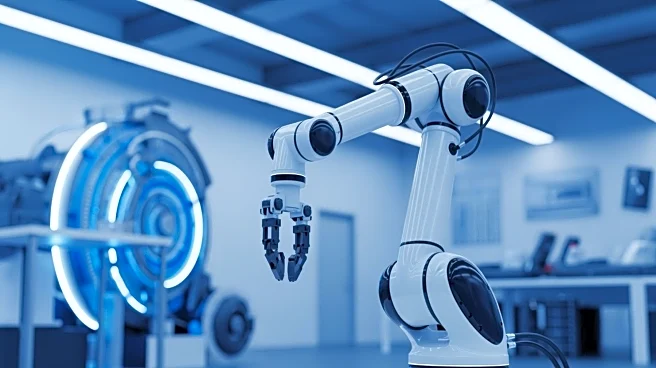What's Happening?
Amazon is set to lay off up to 30,000 corporate employees in a significant workforce reduction aimed at cutting expenses and addressing over-hiring during the pandemic. The layoffs will affect various business units, including logistics, payments, video
games, and Amazon Web Services. This move follows Amazon's previous layoff of 27,000 corporate workers in 2023. The company has been cautious in its hiring approach after years of substantial headcount growth, with its corporate workforce tripling between 2017 and 2022. Amazon is investing heavily in artificial intelligence, with plans to increase capital expenditures to over $100 billion in 2025, primarily to expand AI capacity in AWS. CEO Andy Jassy has indicated that AI will lead to efficiency gains, potentially reducing the corporate workforce.
Why It's Important?
The layoffs at Amazon highlight the broader trend of tech companies restructuring their workforce in response to advancements in artificial intelligence. As Amazon invests in AI, it anticipates efficiency gains that could reduce the need for certain jobs, impacting thousands of employees. This shift reflects a significant change in the tech industry, where automation and AI are increasingly influencing employment patterns. The reduction in workforce could have ripple effects on the economy, particularly in regions heavily reliant on tech employment, such as Seattle. Additionally, the focus on AI investment underscores the growing importance of technology in driving business strategies and operational efficiencies.
What's Next?
Amazon's decision to lay off a substantial portion of its workforce may prompt reactions from various stakeholders, including employees, labor unions, and industry analysts. The company is expected to report its third-quarter earnings soon, which may provide further insights into its financial health and strategic direction. As Amazon continues to invest in AI, it may face scrutiny over the ethical implications of workforce reductions and automation. Other tech companies may follow suit, leading to a broader industry shift towards AI-driven operations. The impact on employees and local economies will be closely monitored as the tech sector navigates these changes.
Beyond the Headlines
The move towards automation and AI at Amazon raises questions about the future of work and the role of human labor in tech-driven industries. As companies increasingly rely on technology for efficiency, there may be long-term implications for job security and workforce dynamics. The ethical considerations of replacing human jobs with AI and automation could spark debates on corporate responsibility and the need for policies that support displaced workers. Additionally, the focus on AI investment may influence other sectors to adopt similar strategies, potentially reshaping the landscape of employment and economic growth.















